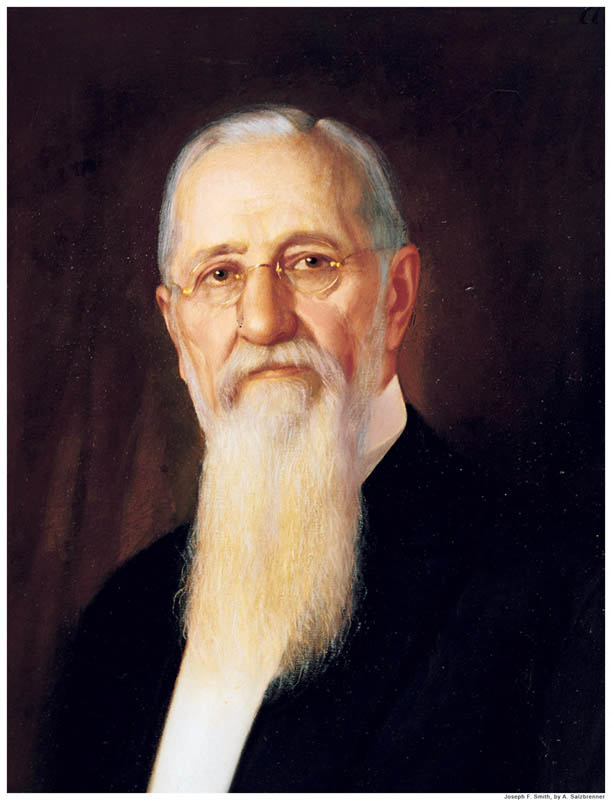A few years ago I began doing firesides (meeting of a group of people who listen to a speaker on a designated topic) to promote and improve the cause of literacy in our nation. As I have traveled I have heard far too often: “I’m too busy to read.” To an author, those words are a death knell. Really. But the more I thought about it, the more I realized our frenetic lifestyles in this modern world have robbed so many people of one the simplest, yet most impactful and ejoyable activities human beings have . . . reading.
I began to search www.lds.org to see if the brethren (Prophet, Apostles and general authorities) had said anything about literacy, reading, books . . . anything . . . I found President Hinckley’s talk he gave in June of 1996: “Four Simple Things to Help Our Families and Our Nations“
Yes, I did find some great stuff on literacy, but stumbling across this prophetic nugget of hope was truly amazing. President Hinckley reminisced about his childhood:
“We attended the public schools. My elementary school was named after American statesman Alexander Hamilton. My junior high school was named for United States president Theodore Roosevelt. We learned about these men. On February 12 we had a holiday for President Abraham Lincoln’s birthday. On February 22 we had another holiday to honor President George Washington. Just before these holidays we had school programs in which we learned about “Honest Abe” and the boy George who admitted to chopping down his father’s cherry tree. Maybe there was little historical substance to some of those stories, but there was something of substance that came into our lives. We developed an appreciation for the principle of honesty. Today we have Presidents’ Day in the United States, but for many it has become primarily a play day.
“We were taught respect for girls. We played games with them in the neighborhood. We had parties in our homes with boys and girls. Even as we grew older and went on dates, there was a certain wholesomeness about it and respect for the girls with whom we associated. Yes, society has made a lot of technical progress since those days, but we have also lost a tremendous reservoir of values.” (Gordon B. Hinckley, “Four Simple Things to Help Our Families and Our Nations,” Liahona, Jun 1996, 3)
This era he described is the one of his youth. It was a time of respect for our founding fathers rather than vilification. It was a time of respect for the United States of America. It was a time of respect for each other and the fact that we are children of God. It was a time when people respected themselves as much they respected others.
I had some of this in my youth, because I grew up in rural Western Colorado by a mother who still believed in old fashioned values and behaviors. I grew up by the code of the Sacketts, which was my own addition, but one my mother heartily endorsed. But over the years, I have seen a rapid degradation of society in all areas and this President Hinckley also talked about:
“Today there are fancier cars, yet we worry about car jacking and drive-by shootings. We have television and cable and all of their related paraphernalia, where entertainment, coarse in its nature, profane and obscene in its language, is poured into our living rooms. We dare not walk the streets of many cities at night. Crime has been listed as the most serious problem of our day. Using the United States only as an example, it is estimated that there are six million serious crimes a year committed in the land. Per capita crime increased 371 percent between 1960 and 1992. That is only 32 years. There were 23,760 murders in 1992, almost half the number of Americans killed during the entire Vietnam War.
“Children killing children has become one of the tragic elements of society. Murder is the second-highest cause of death among youth. More money is constantly sought to hire more policemen and to build more prisons. I do not doubt that they are necessary. But I am rather confident they would not substantially alter the picture, because that is not getting at the roots of the problem.” (Gordon B. Hinckley, “Four Simple Things to Help Our Families and Our Nations,” Liahona, Jun 1996, 3)
This was the situation in 1992 and now it is much, much worse. We’ve only to take a snapshot of today’s society to see the prophecies of old coming true in great rapidity. But President Hinckley, our living Prophet, Seer and Revelator, has given us hope. This sweet, wonderful, strong mouthpiece of the Lord spoke His words when he issued a prophetic promise:
“I am more concerned about the moral deficit in our nations than I am about their budget deficits, though that, too, is a most serious matter. Do societies need more policemen? I do not dispute it. Do societies need more prisons? I suppose so. But what they need, above all else, is a strengthening of the homes of the people. Every child is a product of a home. Societies are having terrible youth problems, but I am convinced that they have a greater parent problem. I am grateful that we of the Church have for a long time taught and are teaching and spending a substantial part of our resources to fortify the homes of our people.
“… What can be done? We cannot effect a turnaround in a day or a month or a year. But I am satisfied that with enough effort we can begin a turnaround within a generation and accomplish wonders within two generations. [Emphasis added.] That is not very long in the history of man. There is nothing any of us can do that will have greater longtime benefit than to rekindle wherever possible the spirit of the kind of homes in which goodness can flourish.
“… What, you may ask, can be done? The observance of four simple things on the part of parents would in a generation or two turn our societies around in terms of their moral values.
“They are simply these: Let parents and children (1) teach and learn goodness together, (2) work together, (3) read good books together, and (4) pray together.” (Gordon B. Hinckley, “Four Simple Things to Help Our Families and Our Nations,” Liahona, Jun 1996, 3)
These words pierced my soul. Society turned around within a generation or two because of these four simple things.
Teach and learn goodness together ? Basic civility is a victim of our modern society. You’ve only to pull up to a drive-thru window of a fast food restaurant and it’ll be a crap shoot whether you get basic civility or not. Customer service is a thing of the past. Simple respect for one another’s freedoms, liberties and rights is gone. President Hinckley speaks of the fact that there seems to be no mercy today and yes, I see that too.
When I was growing up, my mother really drove home the “if you don’t have something nice to say, say nothing at all.” She raised us to see the good in people; to appreciate our differences and celebrate our likenesses. She raised us up unto the Lord in the very best way she knew how even though our biological father did all he could to countermand it. She read to us from the scriptures every night, prayed with us morning and night, took us to church every Sunday and we had family home evening every Monday. She didn’t just teach us, but lived the gospel of Jesus Christ. She taught us to be nice, helpful, encouraging, hopeful . . . all qualities of Jesus Christ.
And yet when I look at this society today, eleven years after President Hinckley gave this talk, I see even a greater lack of civility and mercy. So yes, as our prophet has said, teach goodness in your homes by your behaviors and your words.
Work together ? We really have become a lazy nation. Children and parents planted in front of the television, either watching shows or playing video games. This generation of children, maybe even their parents, have no idea how to plant and tend a garden, how to water and feed animals, how to clean out a chicken coop and barn and do the milking morning and night, regardless of ones activities.
If you’re raised in the country, you learn how to work. There isn’t any way around that. But in the city, parents have to get creative in order to teach their children how to work. Chore charts for chores around the house are a great idea. Planting a garden in a corner of your lawn teaches your children that living fruits and vegetables depend on their care to survive and if cared for properly, reward you with delicious sustenance. Keeping lawns and flower gardens neatly trimmed also teaches a child the value of work. Projects between parents and children, building things, sewing things, creating things . . . these all teach the value of work. But you must work together so that your actions are speaking as loudly as your words.
Read good books together ? Oh yeah, I really like this one. President Hinckley said in the same talk, “I regard television as perhaps the greatest tool yet created to teach and educate people in large numbers. But I decry the filth, the rot, the violence, and the profanity that spew from television screens into our homes. It is a sad commentary on our societies. The fact that the television set is on six or seven hours every day in many homes says something of tremendous importance. I feel sorry for those who are addicted to the tube. I believe it is an addiction. It becomes a habit as pernicious as many other bad habits. I feel sorry for parents who do not read to their young children. I feel sorry for children who do not learn the wonders to be found in good books, or how stimulating an experience it is to get into the mind of a great thinker as that person expresses himself or herself, with language cultivated and polished, concerning great and important issues.”
Good books can be found everywhere! Tristi Pinkston is a book reviewer over at www.families.com. There you will find amazingly huge numbers of reviews of good, clean books that anyone can read, enjoy and learn a little at the same time. The Christian and LDS markets (which I am not going to go into the fact that Mormons are Christians again) are flush with good, clean, entertaining fiction. Fiction, in case you didn’t realize, is a well-written parable. Does the parable teach good or bad? Does it leave you with an uplifted, encouraged feeling or do you feel depressed and downhearted after reading it? I think these are good markers to help you.
Non-fiction is amazing. I love to learn. I’m very careful to choose books that I know are accurate rather than filled with propaganda and lies, but I love to learn. History is so fascinating and I simply cannot get enough of it. Theology books literally fill my soul. So yes, I wholeheartedly concur with President Hinckley. Turn off the t.v. and pick up a good book.
Did you know that my mother read to us every night? First from one of James Herriot’s books, which induced massive spasms of laughter in all of us, and then very reverently from the Holy Scriptures. We always ended this wonderful moment of every day with family prayer. My mother taught each of us to read and write before we ever entered kindergarten. She took us to the library every week, or the bookmobile (I love the bookmobile) to be sure that we had reading material. My mother surrounded us with good books and then showed us the example by reading herself.
Pray together ? President Hinckley said of this precious gift we all have, “Is prayer such a difficult thing? Would it be so hard to encourage fathers and mothers to get on their knees with their little children and address the throne of Deity to express gratitude for blessings, to pray for those in distress as well as for themselves, and then to ask it in the name of the Savior and Redeemer of the world? How mighty a thing is prayer. Of that I can testify and to that you can testify. How tragic the loss for any family that fails to take advantage of this precious and simple practice.”
I heartily echo President Hinckley’s words. Prayer is so amazing and something that I have blogged about before. But only one thing I would have you remember right now. When you kneel down, bow your head and fold your arms and utter the words, “Dear Heavenly Father,” you immediately are speaking to God. He listens. He loves. He answers. Teach your children to pray and teach of the beautiful, precious gift this is to the children of God.
And so — these four simple things will allow society to turn around within a generation or two. To turn from wars and rumors of wars. To turn from ever rising tides of crime and crimes against humanity. To turn from children murdering children. To turn from the complete degradation of the human spirit.
Do you want to feel hope again? Do you want to know peace again? Do you want to create a family unit so strong, so inviolate, it cannot be destroyed by the buffetings of Satan? Do you want to triumph over this life rather than merely subject to it?




